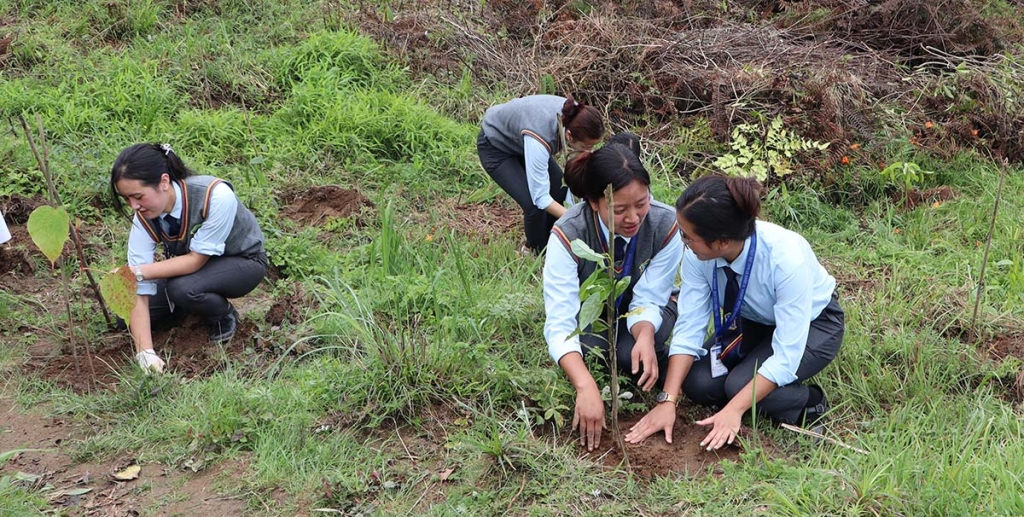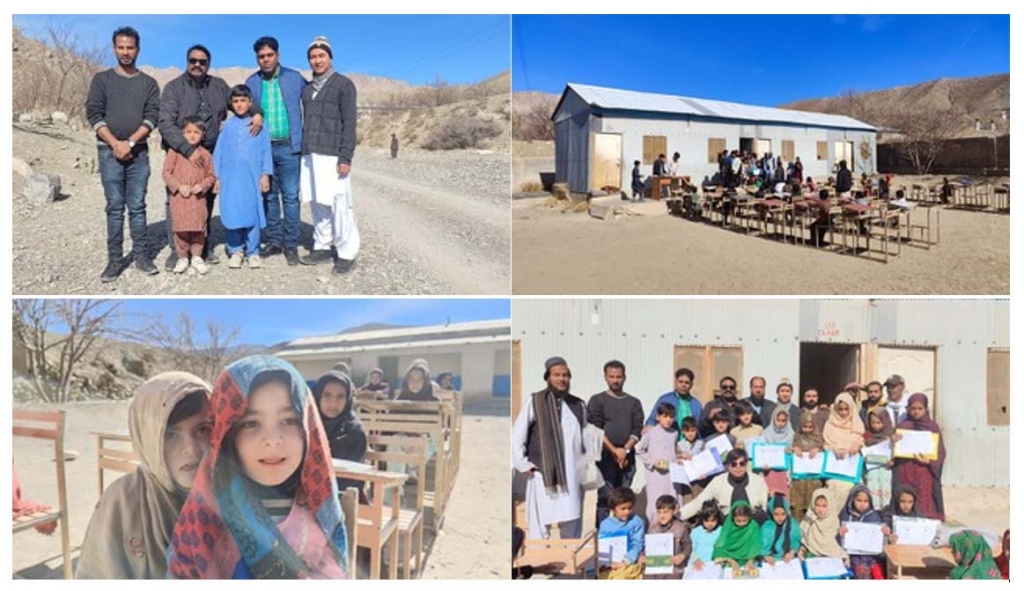INDIA: Students plant 1,000 trees

More than 100 Salesian students and teachers participate in tree planting to protect environment
(MissionNewswire) More than 100 students and teachers from the Salesian college and senior secondary school in Sonata participated in planting over 1,000 trees in the Tukrey Forest in Gorabari, Darjeeling, India. They worked along with religious leaders, police personnel, non-governmental organization members and forest department employees.
“This tree planting event is among many green projects Salesians have taken part in around the globe with a focus on environmental sustainability,” said Father Timothy Ploch, interim director of Salesian Missions, the U.S. development arm of the Salesians of Don Bosco. “Greener practices ensure a better life for the youth we serve as well as teach them the importance of protecting the environment.”
The Darjeeling Forestry Department organized the tree planting campaign to celebrate the Festival of Trees 2023, named Van Mahotsav. The festival is celebrated every year for a week in July to create awareness and enthusiasm for forest conservation and tree planting. The activity is part of a massive campaign organized to plant over 25,000 saplings across the state.
Vishwanath Pratap N., district forest officer of the Darjeeling Forest Division, said, “Tree planting is necessary for the Darjeeling hills as trees compact the soil, prevent landslides, improve air quality and help get more rainfall. The campaign spreads the message of forest conservation to combat the negative effects of global warming.”
Salesian programs in India are primarily focused on education. Salesian primary and secondary education helps youth prepare for later technical, vocational or university study. Other programs help to support poor youth and their families by meeting the basic needs of shelter, proper nutrition and medical care.
India’s youth face a lack of educational opportunities due to issues of caste, class and gender. Almost 44% of the workforce is illiterate and less than 10% of the working-age population has completed a secondary education. In addition, many secondary school graduates do not have the knowledge and skills to compete in today’s changing job market.
###
Sources:
ANS Photo (usage permissions and guidelines must be requested from ANS)
Salesian Missions – India
World Bank – India





